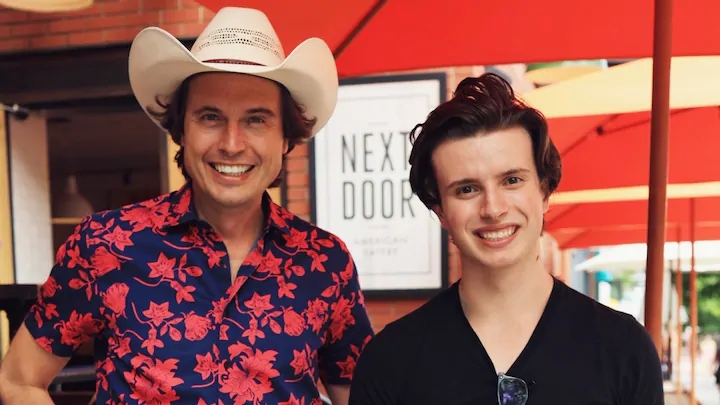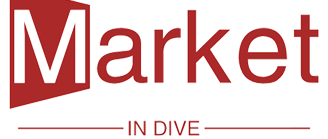Adam Guild, a 21-year-old high school dropout, has produced a company that is quickly changing the scope of the dining establishment and food shipment markets.
Profitboss, a “totally free online ordering option,” as Guild calls it, not only allows dining establishments to have actual meals delivered totally free or at a really low charge compared to shipment apps like Uber Consumes– it likewise assists restaurant owners to keep track of and use consumer data for the advantage of their organizations.
“I have had a really odd life,” Guild said. “I constructed my very first technology project when I was 9.”
Guild found his place in the tech market while playing and developing servers on Minecraft as a teen. He got so excellent at developing and handling Minecraft servers when he was a teen– and making cash off them– that high school and the things he learned in high school no longer appealed to him, and he left.
He worked some chores up until his mommy began her own high-end grooming company in a Los Angeles community that does not get much foot traffic. Guild saw how her service was having a hard time, created a plan, and assisted her to establish a site that made individuals wish to stop inside her shop.
“At my mom’s birthday that year– it was me, my mommy and my bro– and I keep in mind, at the end of supper, she informed us that this was the first year in as long as she might remember that she was truly eagerly anticipating the future again. She was re-energized by this organization, and she found a function and enthusiasm through her group and all of her incredible customers,” Guild said.
That’s when he realized that what he was doing in the video gaming industry was “just losing a lot of teenagers’ time” when he would rather be making an authentic impact assisting individuals through innovation.
Guild created Profitboss several years back in an effort to help dining establishments build in-store traffic, and it began removing prior to the COVID-19 pandemic concerned the U.S.
“That was going really well. I didn’t require to raise cash. We had numerous countless dollars in capital and millions of dollars in agreements with these restaurants– both independent and big restaurants,” Guild stated, naming P.F. Chang’s and UpperCrust as a number of examples. However then COVID-19 hit, and the goal of the app became type obsolete, and the company’s yearly contracts were not paying.
“We had about 4 months of money left. I had to lay off a lot of individuals on the team, and … everything possible that could have gone incorrect did go wrong. I believed I was going to lose whatever,” Guild stated.
So, like he did when he was assisting his mommy to create an effective website, he went around to regional dining establishment owners and asked what they wanted and needed to be more successful. A number of the owners expressed contempt over the method shipment apps seemed to be making the most of their services and costing them their success.

The whole goal of Profitboss is to give dining establishment owners more control over their deliveries, their customer data, and organizations in general– and investors love the concept. Tinder creator Sean Rad, AngelList CEO Naval Ravikant, South African restauranteur Kimbal Musk, Redpoint Ventures, and others have purchased the startup.
Some shipment apps charge restaurants upward of a 20% cost for shipment, implying that if a customer orders a $50 meal from a dining establishment, that company may need to pay around $10 for delivery ” in a market where their internet margins averaged 5%,” Guild described, so they lost cash on each deal they had through those shipment platforms.
Some apps briefly lowered or waived their commission fees in the middle of the pandemic, including Uber Eats, DoorDash and Grubhub.
Owners likewise revealed dissatisfaction with the loss of control over the consumer experience using shipment apps since they did not get access to clients’ data to utilize for themselves.
Profitboss enables restaurant owners to accept online orders without being charged a commission charge to keep their success and “collects and offers them access to all of their customer information,” which helps owners increase sales by revealing brand-new clients’ recommendations and making recommendations to returning consumers. Owners can also use the data for online marketing projects.
Profitboss worked out a $5 flat rate that covers any delivery within 5 miles of a dining establishment’s place, and restaurants can charge clients to cover the complete cost or a portion of the cost.
“You can set it so that your clients pay a $3.00 shipment fee– which is regular and, in reality, less than the fee they would pay on Postmates. … So if it’s $5 for within 5 miles, and let’s say your consumer is paying $3, then all you have to pay is $2. Suddenly, you’ve less than halved your shipment expenses, and the client is likewise conserving,” Guild stated.
Profitboss likewise has collaborations with DoorDash and Postmates, which Uber bought for $2.65 billion in July, to utilize their chauffeurs without requiring to give them 20% or 30% for each transaction.
Guild added that the reaction from dining establishment owners up until now has been “humbling and motivating.”
Just 43% of U.S. small company owners anticipate to endure through June of next year, and almost half of U.S. little organizations are at risk of closing by the year’s end. About 48% of small company owners say they are generating earnings under what they require to survive– a 6% increase given that September, according to a Wednesday report from Alignable.
Lots of states are implementing new lockdown measures as COVID-19 cases spike throughout the nation. States consisting of New York, Pennsylvania and California have recently executed brand-new restrictions on indoor dining in an effort to suppress the spread of the virus, leading many restaurants to focus entirely on outside and shipment service up until they can reopen.

